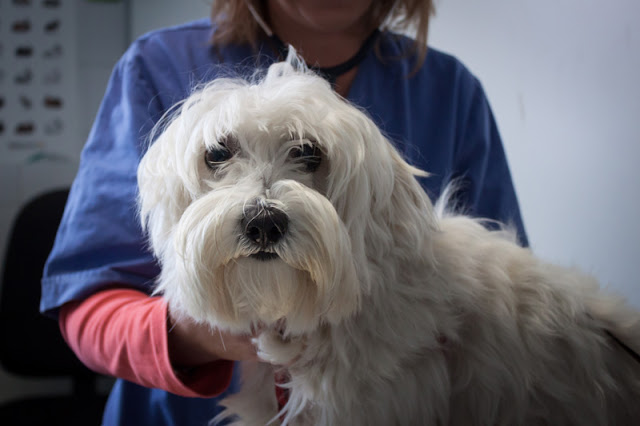Study Shows Just How Stressed Dogs Are at the Vet's

Most dogs show signs of impaired welfare at the vet, according to their owners, and too many people scold their dog at the vet. By Zazie Todd, PhD This page contains affiliate links which means I may earn a commission on qualifying purchases at no cost to you. A survey of 906 dog guardians in Italy found most people report their dog as being stressed at all stages of the visit to a vet clinic, from being in the waiting room to being examined by the vet. 6.4% of dogs had actually bitten their guardian at the vet and 11.2% had growled or snapped at the vet. The report by Chiara Mariti (University of Pisa) et al draws important conclusions about what owners and vets need to do to help dogs at the vet, including teaching them to be handled. The scientists write, “It is in fact alarming that only one third of dogs seemed to tolerate all kinds of clinical handling carried out by the vet. “The proportion of guardians who resorted to scolding their dogs if they refused to be trea...




